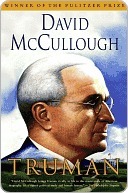More on this book
Community
Kindle Notes & Highlights
Truman also still refused to reprimand MacArthur. Rather he treated MacArthur with what Acheson considered “infinite patience”—too much infinite patience, Acheson thought, having by now concluded that the general was “incurably recalcitrant” and fundamentally disloyal to the purposes of his Commander in Chief.
In conclusion, MacArthur said he personally “stood ready at any time” to meet with the Chinese commander to reach a settlement. All Truman’s careful preparations of a cease-fire proposal were now in vain. MacArthur had cut the ground out from under him. Later MacArthur would dismiss what he had said as a “routine communiqué.” Yet his own devoted aide, General Courtney Whitney, would describe it as a bold effort to stop one of the most disgraceful plots in American history, meaning the administration’s plan to appease China.
At the end of a routine morning staff meeting, the President quietly announced—“So you won’t have to read about it in the papers”—that he had decided to fire General MacArthur. He was sure, Truman added, that MacArthur had wanted to be fired. He
The clamor in the country, the outrage, the noisy hostility to Truman, the adulation of MacArthur continued, however, and would grow greater still when MacArthur made his triumphal return. Nothing had so stirred the political passions of the country since the Civil War. At the heart of the tumult was anger and frustration over the war in Korea. Nobody liked it. Senator Wherry had begun calling it “Truman’s War,” and the name caught on. People were sick of Truman’s War, frustrated and a bit baffled by talk of a “limited war.” America didn’t fight to achieve a stalemate, and the cost in blood
...more
According to a Gallup Poll, 69 percent of the country backed General MacArthur. The fact that the country and nearly every leading Republican had strongly supported Truman’s decision to go into Korea the previous June, the fact that in November MacArthur, the supreme military strategist, had presided over one of the worst debacles in American military history, or that only 30 percent of the country expressed a willingness to go to war with China, were all overlooked.
MacArthur did truly believe that he was above the President. MacArthur himself later told the historian Samuel Eliot Morison that a theater commander should be allowed to act independently, with no orders from the President, the United Nations, or anyone; then, to be sure that there could be no mistaking his meaning, MacArthur repeated the statement.
If “victory” in Korea meant risking a world war—a war of atomic bombs—Truman would settle for no victory in Korea.
In the final hour of the speech McCarthy was addressing a virtually empty chamber—all but three senators had walked out. The press deplored these “senseless and vicious charges,” but McCarthy carried on, traveling the country. He still had no evidence. He exposed not a single Communist in government. Yet none of that seemed to matter, as he shouted and threatened and waved fistfuls of so-called “documentation.”
“I must confess, sir,” Churchill went on, “I held you in very low regard then. I loathed your taking the place of Franklin Roosevelt.” He paused. “I misjudged you badly. Since that time, you more than any other man, have saved Western civilization.”
When Franklin Roosevelt died, I felt there must be a million men better qualified than I, to take up the Presidential task. But the work was mine to do, and I had to do it. And I have tried to give it everything that was in me. . . . Good night and God bless you all.


